How to determine how rich is a country and compare it with the others? Of course, the main indicator is the GDP per capita (a total value of goods and services produced by a nation during a year divided by its total population). It shows how rich each citizen is, on average, but unfortunately does not take into account differences in the cost of living in various parts of the world. A strong economy positively affects an average life expectancy in a country, but do not influence people's satisfaction with their lives, do not determine how happy are they. A Ranking of Happiness (based on the poll of real people from the different parts of the world) could give the answer. Respondents evaluate own living conditions and happiness level on a scale from 0 to 10 points. On the basis of these data, the World Ranking of Happiness is formed (note that some microstates do not participate in the survey). Oil-rich nations dominate the list of the world’s wealthiest countries, as measured by Global Finance. The magazine’s ranking uses per capita gross domestic product (GDP): the value of goods and services produced annually by an average person in each country. Global Finance also considers something called “purchasing power parity,” which takes exchange rates into account when comparing the prices of goods from one country with another.. Using the purchasing power parity (PPP) value of all final goods to show true value of dollar within a country in a given year.This 10 richest countries by gross domestic product (at purchasing power parity) per capita,
10 – Saudi Arabia - $51,924 GDP per capita
Saudi Arabia is one of many oil-basd economies with strong government control over major economic activities that enjoy high GDP. Its GDP per capita is $51,924 as it possesses 18% of the world's proven petroleum reserves, ranks as the largest exporter of petroleum, and played a leading role in OPEC for many years.The petroleum sector accounts for almost all of Saudi government revenues, and export earnings. Despite possessing the largest petroleum reserves in the world, its per capita income dropped is much smaller than of that of smaller Persian Gulf neighbors.Petroleum was discovered on 3 March 1938 and followed up by several other finds in the Eastern Province. Saudi Arabia has since become the world's largest oil producer and exporter, controlling the world's second largest oil reserves, and the sixth largest gas reserves. The kingdom is categorized as a World Bank high-income economy with a high Human Development Index, and is the only Arab country to be part of the G-20 major economies. However, the economy of Saudi Arabia is the least diversified in the Gulf Cooperation Council, lacking any significant service or production sector (apart from the extraction of resources). The state has attracted criticism for its treatment of women and use of capital punishment. Saudi Arabia is a monarchical autocracy, has the fourth highest military expenditure in the world, and in 2010–14, SIPRI found that Saudi Arabia was the world's second largest arms importer. Saudi Arabia is considered a regional and middle power. In addition to the GCC, it is an active member of the Organisation of Islamic Cooperation and OPEC.
9 – The United States - $54,630 GDP per capita
While most nations on the list have small populations (relatively), it is impressive that the world's largest economy, the United States, can maintain a per capita GDP of $54,630, considering its population of over 310 million people. Reasons behind its success include its large domestic automotive industry, technological sector that foster innovation, and a system of democracy that protects entrepreneurial and intellectual property rights.The United States embarked on a vigorous expansion across North America throughout the 19th century, displacing American Indian tribes, acquiring new territories, and gradually admitting new states until it spanned the continent in 1848. During the second half of the 19th century, the American Civil War led to the end of legal slavery in the country. By the end of that century, the United States extended into the Pacific Ocean, and its economy, driven in large part by the Industrial Revolution, began to soar.The United States is a highly developed country, with the world's largest economy by nominal GDP. It ranks highly in several measures of socioeconomic performance, including average wage, human development, per capita GDP, and productivity per person. While the U.S. economy is considered post-industrial, characterized by the dominance of services and knowledge economy, The Spanish–American War and World War I confirmed the country's status as a global military power. The United States emerged from World War II as a global superpower, the first country to develop nuclear weapons, the only country to use them in warfare, and a permanent member of the United Nations Security Council., with the world's largest economy by nominal GDP. It ranks highly in several measures of socioeconomic performance, including average wage, human development, per capita GDP, and productivity per person. While the U.S. economy is considered post-industrial, characterized by the dominance of services and knowledge economy, the manufacturing sector remains the second-largest in the world Though its population is only 4.3% of the world total, the United States accounts for nearly a quarter of world GDP and over a third of global military spending, making it the world's foremost economic and military power. The United States is a prominent political and cultural force internationally, and a leader in scientific research and technological innovations
8 – Switzerland - $57,235 GDP per capita
The GDP (PPP) per Swiss citizen is $57,235. Swiss banking and financial institutions keep this country and its economy afloat.Switzerland is one of the most developed countries in the world, with the highest nominal wealth per adult and the eighth-highest per capita gross domestic product according to the IMF.Switzerland ranks at or near the top globally in several metrics of national performance, including government transparency, civil liberties, quality of life, economic competitiveness, and human development. Zürich and Geneva have each been ranked among the top cities in the world in terms of quality of life, with the former ranked second globally, according to Mercer. It is important to note that some of the wealthiest people and companies in the world own Swiss bank accounts and therefore Switzerland has excess capital to use for investment purposes. Zurich and Geneva, Switzerland's most well-known cities, have consistently ranked among the top ten highest living standard cities in the world.Spanning the intersection of Germanic and Romance Europe, Switzerland comprises four main linguistic and cultural regions: German, French, Italian and Romansh. Although the majority of the population are German speaking, Swiss national identity is rooted in a common historical background, shared values such as federalism and direct democracy
7 – Norway - $64,856 GDP per capita
This Nordic nation's per capita GDP of $64,856 allows its 4.97 million people to reap the benefits of a small yet robust economy. Driven by fishing, natural resources, and major petroleum exploration, Norway is the eighth largest exporter of crude oil, 9th largest exporter of refined oil, and 3rd largest exporter of natural gas in the world.The country has the fourth-highest per capita income in the world on the World Bank and IMF lists. On the CIA's GDP (PPP) per capita list (2015 estimate) which includes territories and some regions, Norway ranks as number eleven. From 2001 to 2006, and then again from 2009 to 2015, Norway had the highest Human Development Index ranking in the world. Norway has topped the Legatum Prosperity Index for seven years in a row as of 2015. Norway also ranks first on the OECD Better Life Index, the Index of Public Integrity, and the Democracy Index.The country maintains a combination of market economy and a Nordic welfare model with universal health care and a comprehensive social security system. Norway has extensive reserves of petroleum, natural gas, minerals, lumber, seafood, fresh water, and hydropower. The petroleum industry accounts for around a quarter of the country's gross domestic product (GDP). On a per-capita basis, Norway is the world's largest producer of oil and natural gas outside the Middle East.Norway has both administrative and political subdivisions on two levels: counties and municipalities. The Sámi people have a certain amount of self-determination and influence over traditional territories through the Sámi Parliament and the Finnmark Act.
6 – The United Arab Emirates - $67,674 GDP per capita
This Middle Eastern federation of emirates has a land area of about 32,278 sq. miles, which means it could easily fit within New York State (54,556 sq. miles). With a population of 9.2 million people, it's a bit more populated than the state of New Jersey. A third of the $67,674 per capita economy comes from oil revenues, while the service sector and telecommunications also contribute significantly. The UAE is the second largest economy in the Arab world after Saudi Arabia.The country is a federation of seven emirates, and was established on December 2, 1971. The constituent emirates are Abu Dhabi (which serves as the capital), Ajman, Dubai, Fujairah, Ras al-Khaimah, Sharjah and Umm al-Quwain. Each emirate is governed by an absolute monarch; together, they jointly form the Federal Supreme Council. One of the monarchs is selected as the President of the United Arab Emirates. Islam is the official religion of the UAE and Arabic is the official language (although English and Indian dialects are widely spoken, with English being the language of business and education particularly in Abu Dhabi and Dubai). The UAE's oil reserves are the seventh-largest in the world while its natural gas reserves are the world's seventeenth-largest. Sheikh Zayed, ruler of Abu Dhabi and the first President of the UAE, oversaw the development of the Emirates and steered oil revenues into healthcare, education and infrastructure. The UAE's economy is the most diversified in the Gulf Cooperation Council, with its most populous city of Dubai is an important global city and an international aviation hub. Nevertheless, the country remains principally reliant on its export of petroleum and natural gas
5 – Brunei - $71,185 GDP (PPP) per capita
Brunei, a small country with a wealthy economy that is a mixture of foreign and domestic entrepreneurship, government regulation and welfare measures, and village tradition has led to GDP per capita (PPP) of 71,185. It is almost completely supported by exports of crude oil and natural gas. Like other oil countries in the list the government has shown progress in diversifying the economy away from just oil and gas.During the 19th century, the Bruneian Empire began to decline. The Sultanate ceded Sarawak (Kuching) to James Brooke and installed him as the White Rajah, and it ceded Sabah to the British North Borneo Chartered Company. In 1888, Brunei became a British protectorate and was assigned a British resident as colonial manager in 1906. After the Japanese occupation during World War II, in 1959 a new constitution was written. In 1962, a small armed rebellion against the monarchy was ended with the help of the British. Brunei gained its independence from the United Kingdom on 1 January 1984. Economic growth during the 1990s and 2000s, with the GDP increasing 56% from 1999 to 2008, transformed Brunei into an industrialised country. It has developed wealth from extensive petroleum and natural gas fields. Brunei has the second-highest Human Development Index among the Southeast Asian nations, after Singapore, and is classified as a "developed country". According to the International Monetary Fund (IMF), Brunei is ranked fifth in the world by gross domestic product per capita at purchasing power parity. The IMF estimated, in 2011, that Brunei was one of two countries (the other being Libya) with a public debt at 0% of the national GDP. Forbes also ranks Brunei as the fifth-richest nation out of 182, based on its petroleum and natural gas fields.
4 – Kuwait - $73,246 GDP (PPP) per capita
Kuwait is a small, relatively open economy and its citizens enjoy a per capita GDP (PPP) of $73,246.Oil reserves were discovered in 1938. From 1946 to 1982, the country underwent large-scale modernization. In the 1980s, Kuwait experienced a period of geopolitical instability and an economic crisis following the stock market crash. In 1990, Kuwait was invaded by Iraq. The Iraqi occupation came to an end in 1991 after military intervention by coalition forces. At the end of the war, there were extensive efforts to revive the economy and rebuild national infrastructure. Kuwait is a constitutional emirate with a semi-democratic political system. It has a high income economy backed by the world's sixth largest oil reserves. The Kuwaiti dinar is the highest valued currency in the world. According to the World Bank, the country has the fourth highest per capita income in the world. The Constitution was promulgated in 1962, making Kuwait the most democratic country in the Middle East, behind Israel. Kuwait ranks highly in regional metrics of gender equality, as it has the region's highest Global Gender Gap ranking. The highest-valued currency unit in the world currently is the The Kuwaiti dinar. With nearly 10% of the world's oil reserves, petroleum accounts for nearly half of GDP and 95% of export revenues and government income. In recent years, Kuwait has done little to diversify its economy due to positive fiscal situation.
3 – Singapore - $82,763 GDP (PPP) per capita
This tiny city-state has moved up from 5th position to take 3rd with per capita income (PPP) of $82,763, which is five times the average per capita income for an ordinary individual in the world.Singapore is a global commerce, finance and transport hub. Its standings include: the most "technology-ready" nation (WEF), top International-meetings city (UIA), city with "best investment potential" (BERI), second-most competitive country, third-largest foreign exchange market, third-largest financial centre, third-largest oil refining and trading centre, and the second-busiest container port. The country has also been identified as a tax haven. Singapore is ranked 11th internationally and first in Asia on the UN Human Development Index. It is ranked highly in education, healthcare, life expectancy, quality of life, personal safety, and housing, but does not fare well on the Democracy index. Although income inequality is high, 90% of homes are owner-occupied. 38% of Singapore's 5.6 million residents are permanent residents and other foreign nationals. There are four official languages on the island: Malay, Mandarin, Tamil and English. English is its common language; most Singaporeans are bilingual. Singapore is a unitary multiparty parliamentary republic, with a Westminster system of unicameral parliamentary government. The People's Action Party has won every election since self-government in 1959. One of the five founding members of the ASEAN, Singapore is also the host of the Asia-Pacific Economic Cooperation (APEC) Secretariat, and a member of the East Asia Summit, Non-Aligned Movement, and the Commonwealth of Nations. Capital punishment is a legal penalty in Singapore and it has been referred to as Disneyland with the Death Penalty. The city-state had the second highest per-capita execution rate in the world between 1994 and 1998, estimated by the United Nations to be 13.83 executions annually per one million people during that period The basis of Singapore's wealth is its financial services sector, a chemical export industry, and its liberal economic policies that encourage growth and innovation. Singapore has the second busiest port in the world, exporting $414 billion of goods in 2011 alone.
2 – Luxembourg - $97,662 GDP (PPP) per capita
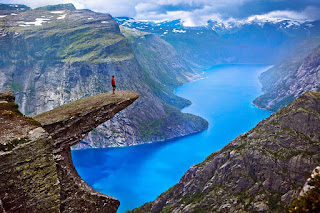 A symbol of wealth, number two on the list has a per capita GDP (PPP) of $97,662, which is nine times the world average.Luxembourg is a founding member of the European Union, OECD, United Nations, NATO, and Benelux, reflecting its political consensus in favour of economic, political, and military integration. The city of Luxembourg, which is the country's capital and largest city, is the seat of several institutions and agencies of the EU. Luxembourg served on the United Nations Security Council for the years 2013 and 2014, which was a first in the country's history. In 2016 Luxembourgish citizens had visa-free or visa-on-arrival access to 172 countries and territories, ranking the Luxembourgian passport 6th in the world, tied with countries such as Canada and Switzerland. The backbone of this strong economy is its vibrant financial sector, prudent fiscal policies, and dynamic industrial and steel sectors. Banking in Luxembourg is the largest sector of its economy with an asset base of over $1.24 trillion alone. Luxembourg had a population of 524,853 in October 2012, ranking it the 8th least-populous country in Europe. As a representative democracy with a constitutional monarch, it is headed by a Grand Duke, Henri, Grand Duke of Luxembourg, and is the world's only remaining grand duchy. Luxembourg is a developed country, with an advanced economy and the world's highest GDP (PPP) per capita, according to the United Nations in 2014. Its central location has historically made it of great strategic importance to numerous powers, dating back to its founding as a Roman fortress, its hosting of a vital Frankish castle during the Early Middle Ages, and its role as a bastion for the Spanish Road between the 16th and 17th centuries.
A symbol of wealth, number two on the list has a per capita GDP (PPP) of $97,662, which is nine times the world average.Luxembourg is a founding member of the European Union, OECD, United Nations, NATO, and Benelux, reflecting its political consensus in favour of economic, political, and military integration. The city of Luxembourg, which is the country's capital and largest city, is the seat of several institutions and agencies of the EU. Luxembourg served on the United Nations Security Council for the years 2013 and 2014, which was a first in the country's history. In 2016 Luxembourgish citizens had visa-free or visa-on-arrival access to 172 countries and territories, ranking the Luxembourgian passport 6th in the world, tied with countries such as Canada and Switzerland. The backbone of this strong economy is its vibrant financial sector, prudent fiscal policies, and dynamic industrial and steel sectors. Banking in Luxembourg is the largest sector of its economy with an asset base of over $1.24 trillion alone. Luxembourg had a population of 524,853 in October 2012, ranking it the 8th least-populous country in Europe. As a representative democracy with a constitutional monarch, it is headed by a Grand Duke, Henri, Grand Duke of Luxembourg, and is the world's only remaining grand duchy. Luxembourg is a developed country, with an advanced economy and the world's highest GDP (PPP) per capita, according to the United Nations in 2014. Its central location has historically made it of great strategic importance to numerous powers, dating back to its founding as a Roman fortress, its hosting of a vital Frankish castle during the Early Middle Ages, and its role as a bastion for the Spanish Road between the 16th and 17th centuries.1 – Qatar - $140,649 GDP (PPP) per capita
Qatar ranks number one on the list of the top 10 richest nations because of its high GDP (PPP) per capita of $140,649. Qatar has a well-developed oil exploration industry where the petroleum industry accounts for 70% of its government revenue, 60% of its GDP and 85% of its export earnings.Qatar is a high income economy and is a developed country, backed by the world's third largest natural gas reserves and oil reserves. The country has the highest per capita income in the world. Qatar is classified by the UN as a country of very high human development and is the most advanced Arab state for human development. Qatar is a significant power in the Arab world, supporting several rebel groups during the Arab Spring both financially and through its globally expanding media group, Al Jazeera Media Network. For its size, Qatar wields disproportionate influence in the world, and has been identified as a middle power. Qatar will host the 2022 FIFA World Cup, becoming the first Arab country to do so Because of its wealth and economic success, it has been chosen as the host of the 2022 FIFA World Cup, the first Arab nation to ever hold this role. However, Qatar is also the most conterversial country on the list for its use of forced labour from nations throughout Asia and parts of Africa.

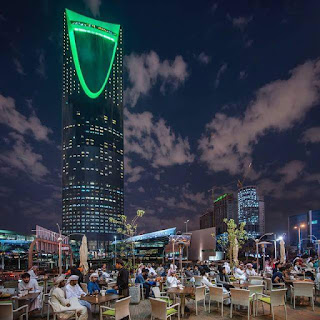
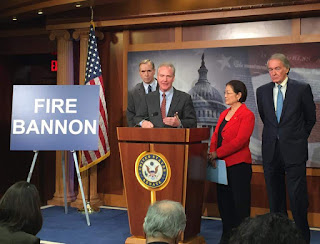

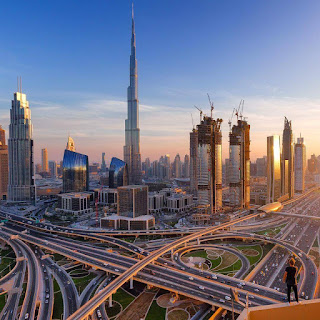
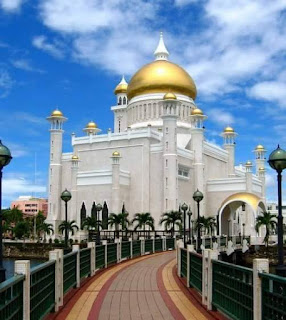
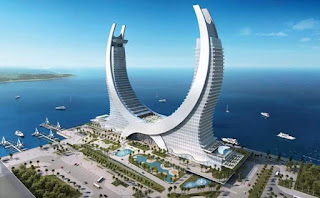


0 comments:
Post a Comment